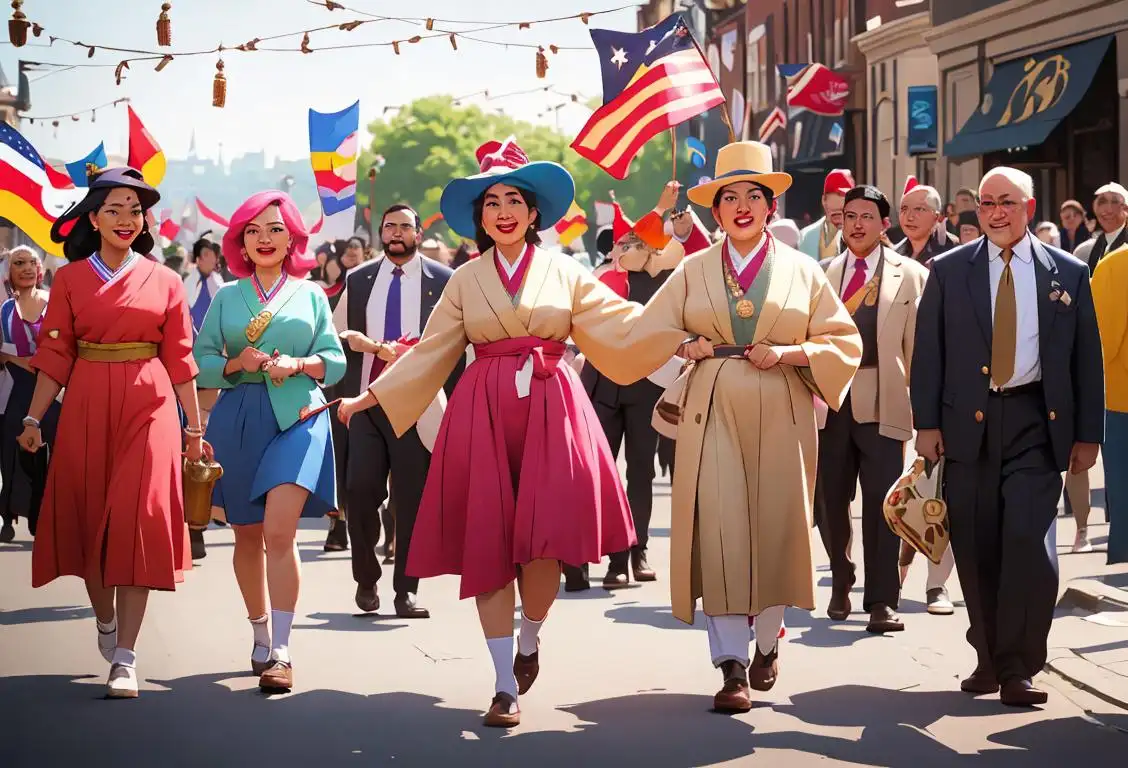National Latino Aids Awareness Day

Are you ready to salsa your way into a day of awareness and remembrance? It's time to celebrate National Latino AIDS Awareness Day! Get your groove on and join the party as we raise awareness about HIV/AIDS within the Latino community.
When is Latino Aids Awareness Day?
It's national latino aids awareness day on the 15th October.
A Day to Educate and Empower
On National Latino AIDS Awareness Day, we come together to shine a light on the impact of HIV/AIDS within the Latino community. This day serves as a platform to educate, empower, and encourage individuals to take proactive steps towards preventing the spread of the virus.
With 863 online mentions, it's clear that people are passionate about spreading awareness and fighting against the stigma associated with HIV/AIDS. The most enthusiasm for this special day was seen on October 15, 2015. On this day, social media platforms were buzzing with discussions, events, and campaigns aimed at promoting education and eradicating misconceptions.
The Importance of Awareness
HIV/AIDS continues to affect individuals worldwide, and the Latino community is no exception. By dedicating a day specifically to raising awareness, we can help address the unique challenges faced by Latinos in regards to healthcare access, cultural barriers, and stigma.
Education plays a crucial role in preventing the transmission of HIV/AIDS. National Latino AIDS Awareness Day serves as a platform to provide information about testing, treatment, and support services available to the community. It's also a day to encourage open conversations and promote understanding to reduce the fear and discrimination that surrounds the virus.
Fighting Stigma, Together
In a world where ignorance and prejudice still exist, events like National Latino AIDS Awareness Day are vital in empowering individuals and communities to fight against the stigma associated with HIV/AIDS. By raising our voices and sharing stories of resilience and strength, we can break down barriers and create a more inclusive society.
Throughout the day, various organizations, healthcare providers, and community leaders come together to organize events such as educational workshops, free testing clinics, panel discussions, and cultural celebrations. These initiatives aim to educate people about the importance of safe practices, regular testing, and support networks available to those living with HIV/AIDS.
History behind the term 'Latino Aids Awareness'
1989
The Emergence
In 1989, the term 'Latino AIDS awareness' emerged as a way to address the growing HIV/AIDS crisis within the Latino community in the United States. This was a time when the devastating impact of the epidemic was becoming more and more apparent, and it became crucial to raise awareness and provide resources specifically tailored to the needs of Latino individuals.
1991
Founding of Latino AIDS organizations
In 1991, the first Latino-specific AIDS organizations were established to advocate for the Latino community and offer culturally relevant support. These organizations aimed to combat the stigma surrounding HIV/AIDS and promote prevention, testing, and treatment among Latinos. Their efforts were instrumental in increasing awareness and reducing the transmission of the virus within the community.
1994
National Latina/o and HIV/AIDS Awareness Day
In 1994, National Latina/o and HIV/AIDS Awareness Day was officially designated on October 15th. This observance seeks to raise awareness about the impact of HIV/AIDS on the Latino community in the United States. It serves as a reminder to address health disparities, promote access to testing and treatment, and provide education to reduce the prevalence of HIV/AIDS within this population.
2004
Increased Awareness and Education
Throughout the years, efforts to raise awareness and educate the Latino community about HIV/AIDS intensified. Various campaigns, conferences, and events were organized to disseminate information, combat misinformation, and encourage prevention strategies. These initiatives helped reduce the stigma, fostered supportive environments, and improved the overall understanding of the complex social and cultural factors influencing HIV/AIDS within the Latino community.
Present
Ongoing Commitment
The term 'Latino AIDS awareness' continues to play a vital role in public health efforts to address HIV/AIDS in the Latino community. Ongoing programs and initiatives focus on culturally competent healthcare, increasing access to testing and treatment, and supporting those living with HIV/AIDS. By recognizing this national day, the goal is to eliminate disparities, promote healthy behaviors, and ultimately eradicate HIV/AIDS within the Latino population.
Did you know?
Did you know that National Latino AIDS Awareness Day is also a day to honor and remember those who have lost their lives to HIV/AIDS? It's a time to reflect on their legacy and continue the fight for a world free from discrimination and suffering.Tagged
awareness nsfw fun rememberanceFirst identified
8th October 2015Most mentioned on
15th October 2015Total mentions
863Other days
Guard Will Be Placed On A Day
Personal Safety Day
Opposite Day
Children Day
Whine Day
Latino Aids Awareness Day
Stormy Daniels Day
Happiness Day
One Day
Revival Day








